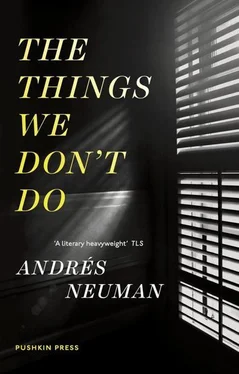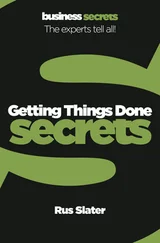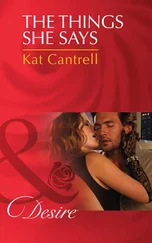A little lower down, three windows to the right, a mother rectifies her offspring’s grubbiness. To judge by the size of the washing, some of them are no longer children. Why do teenagers refuse to take responsibility for their clothes? What kind of embarrassment keeps them away from their own underpants? My neighbour’s eldest son stains quite a few of them each week. Does he also leave lots of clues on his computer, hide magazines in all the obvious places, shut himself in the bathroom for hours? Is he aware that his mother can read his underpants? What a waste of energy. The same applies to my male neighbour on the third floor, who takes the trouble to sort out his washing by size, type and colour. Never a shirt next to a hand towel. He lives alone. I am not surprised. How could anyone possibly sleep with someone unable to trust in the hospitality of chance? No doubt about it, my obsessive neighbour is a master of camouflage.
As the years go by at my window, I have learned that you should not go too far in changing what you observe. You can discover more by concentrating on just one point rather than transferring your attention hither and thither. This counts as a lesson in synthesis. Three or four washing lines ought to provide sufficient material for a thriller.
It’s a fine day today. The sun is flooding the courtyard. My neighbours’ unruly washing lines are gleaming, full of promise. Too many clothes to strip their lives bare.
My lines cannot be seen.
END AND BEGINNING OF LEXIS
EVERY SUNDAY AFTERNOON, after his siesta, Aristides would get up and say “tra”, “cri”, “plu”, or even “tpme”. He would say this out loud, with the utmost eloquence, without the slightest idea why. It was not that his mind was filled with the shreds of interrupted dreams, concrete images, pressing tasks. Not even with words from the tens of thousands he allegedly knew. No, what Aristides used to say, and he expressed it very clearly, was “fte”, “cnac”, “bld”. Still drowsy, unshaven, he became once more someone before lexis. Thus, for a brief moment before he entered the world again, he was boundlessly happy, feeling that the whole language lay before him.
DODECALOGUES FROM A STORYTELLER
These dodecalogues do not claim to be rules for writing stories; they are personal observations that arose during the writing process. They do not constitute a restrictive poetics that excludes in any way; they are happy to contradict each other. In no way do they aim to define the book they accompany; they are simply reflections on short-form narrative. Each of them has twelve points, to avoid the absurd perfection of ten. They would like to be, above all, a playful way of approaching the essay.
DODECALOGUE FROM A STORYTELLER
I
To tell a short story is to know how to keep a secret.
II
Although told in the past tense, stories always happen now . There is no time for any more and no need for it.
III
An excessive development of action paradoxically produces anaemia in a short story, or chokes it to death.
IV
In the opening lines, the life of a short story is at stake, in the last lines its resurrection.
V
Characters do not present themselves: they act.
VI
Atmosphere can be the most memorable part of the plot. The gaze, the main character.
VII
Restrained lyricism creates magic. Unbridled lyricism, tricks.
VIII
The narrator’s voice is so important that it is not always advisable for it to be heard.
IX
Revise: reduce.
X
Talent is rhythm. The most insidious problems begin with punctuation.
XI
In the short story, a minute can be eternal and eternity can unfold in a minute.
XII
To narrate is to seduce: never completely satisfy the reader’s curiosity.
NEW DODECALOGUE FROM A STORYTELLER
I
If it does not stir the emotions, it does not tell a story.
II
Brevity is not a question of scale. Brevity requires its own structures.
III
In the strange edifice of the story, details are the foundations and the main theme, the roof.
IV
The beautiful needs to be precise just as the precise needs to be beautiful. Adjectives: seeds of the story writer.
V
Unity of effect does not mean that all the elements of a story have to converge on a single point. Distract: organize attention.
VI
Virtuous circle: things happen to people who write stories, people to whom things happen write stories.
VII
Characters appear in a story as if by chance, pass us by and go on living.
VIII
Nothing more trivial, in terms of narrative, than a dialogue that is too transcendental.
IX
Good plots rarely waste time explaining themselves.
X
Penetrate the outside. Descriptions are not detours, but short cuts.
XI
A short story knows when it is reaching an ending and takes care to show it. It usually ends before, long before, the narrator’s vanity.
XII
A decalogue is not set in stone, or necessarily applicable to others. A dodecalogue even less so.
THIRD DODECALOGUE FROM A STORYTELLER
I
Far more urgent than to knock a reader out is to wake a reader up.
II
The short story has no essence, only habits.
III
There are two kinds of story: those that already know the plot, and those that go in search of it.
IV
The extreme freedom of a book of short stories derives from the possibility of starting from zero each time. To demand unity from it is like padlocking the laboratory.
V
Stillness as the art of imminence.
VI
The voice determines the event, rather than vice versa.
VII
The short story is pursued by its structure. That is why, every so often, it is pleased when it is dynamited.
VIII
A completely rounded story encircles the readers, does not let them out. In fact, it does not allow them in either.
IX
Every short story is oral in the first or second instance.
X
While short-story writers perpetrate symmetries, their characters forgive them through their imperfections.
XI
Sensationalist temptation of the open ending: cut it short at a too dazzling moment, close it as it opens.
XII
Every story that ends at the right moment begins again in a different way.
FOURTH DODECALOGUE: THE POST-MODERN SHORT STORY
I
Any brief form could be a short story, provided it succeeds in creating a sense of fiction.
II
Lack of a vanishing point: the frontier between yesterday’s story and tomorrow’s.
III
The resolution of the plot and the end of the text keep up an invisible tug of war. If the first prevails, the structure will tend towards Poe. If the second prevails, it will tend towards Chekhov. If the result is a tie, something new might arise.
IV
Читать дальше












